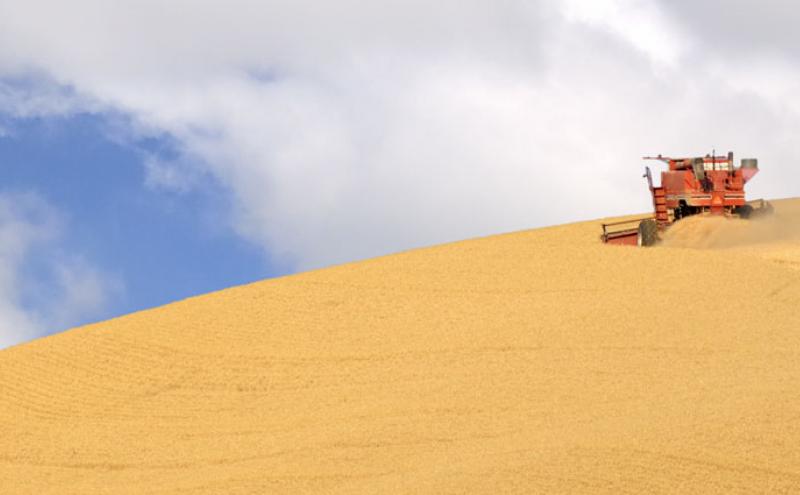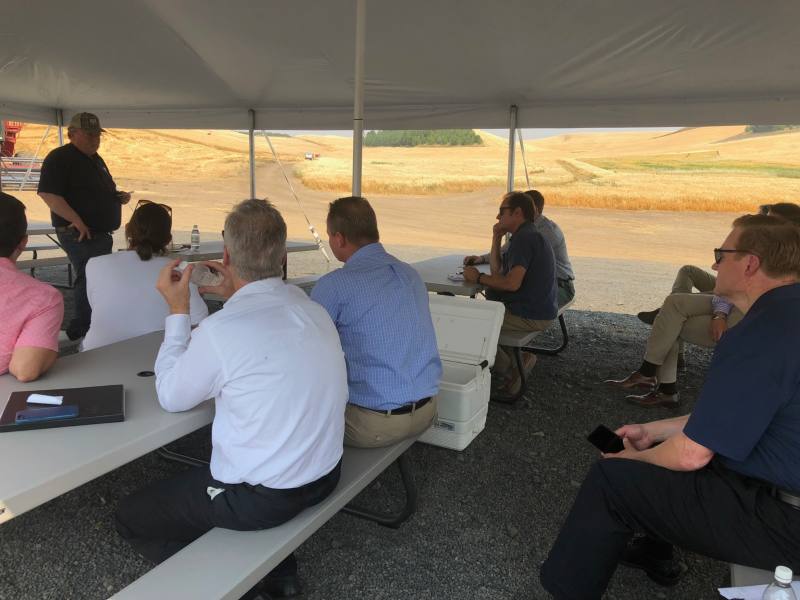
As part of the Port Commission’s annual fact-finding and relationship-building trip across the state, we drove from Spokane to Pullman this week. While the Commission discussed the future of agriculture and trade policy, we had one eye out the window on rolling hills of high-yield wheat crops. We definitely enjoyed the scones made with locally-milled wheat but recognized that the real conversation was about how to ensure our farmers can continue selling the over 80 percent of wheat crops destined for international markets.
In Eastern Washington, as in the rest of the state, trade means jobs. The trade roundtable we co-hosted with Greater Spokane Incorporated gave us valuable insight into just what is at stake if high tariffs break long links between trading partners. And to quote one of our hosts, Alex McGregor, whose family has been farming the Palouse for more than a century — “A trade war is a job killer.”

Alex echoed what we’d heard earlier that day from a panel of agricultural leaders convened at Washington State University. Joe Bippert, with the Washington Grain Commission, emphasized the concerns of wheat growers across Washington state about retaliation or future loss of market access for the growers he represents. Joe told us that U.S. wheat growers exported more than 270 thousand metric tons of wheat to China by this time during the 2017 marketing year, but the number so far for this year is zero. And in Japan, where Washington’s soft white wheat is preferred for the popular sponge cake, a change in price of $65/metric ton may be enough to break longstanding trading relationships that will be tough to rebuild. That means real money to Washington’s farm families — last year, wheat exports to China alone were valued at over $67.5 million. Mark Willit, current head of the Northwest Tree Fruit Research Commission, shared similarly concerning numbers — with exports of tree fruit projected to be down between $60 and $80 million this year, compared with previous years. And Derek Sandison, the Washington State Secretary of Agriculture, reminded us that 94 percent of Washington farms are still family-owned, and 89 percent qualify as small farms and sell less than $250,000 annually, so this hits regular Washingtonians and isn’t just about big agribusinesses losing out.
Our successful trip was another reminder that the "Cascade Curtain" is truly a fiction. Regardless of what part of the state we call home, we clearly share core goals of expanding research and science for sustainable farming, expanding international market access for Washington farmers and manufacturers, and strengthening investments in the transportation infrastructure that gets our goods to market.


